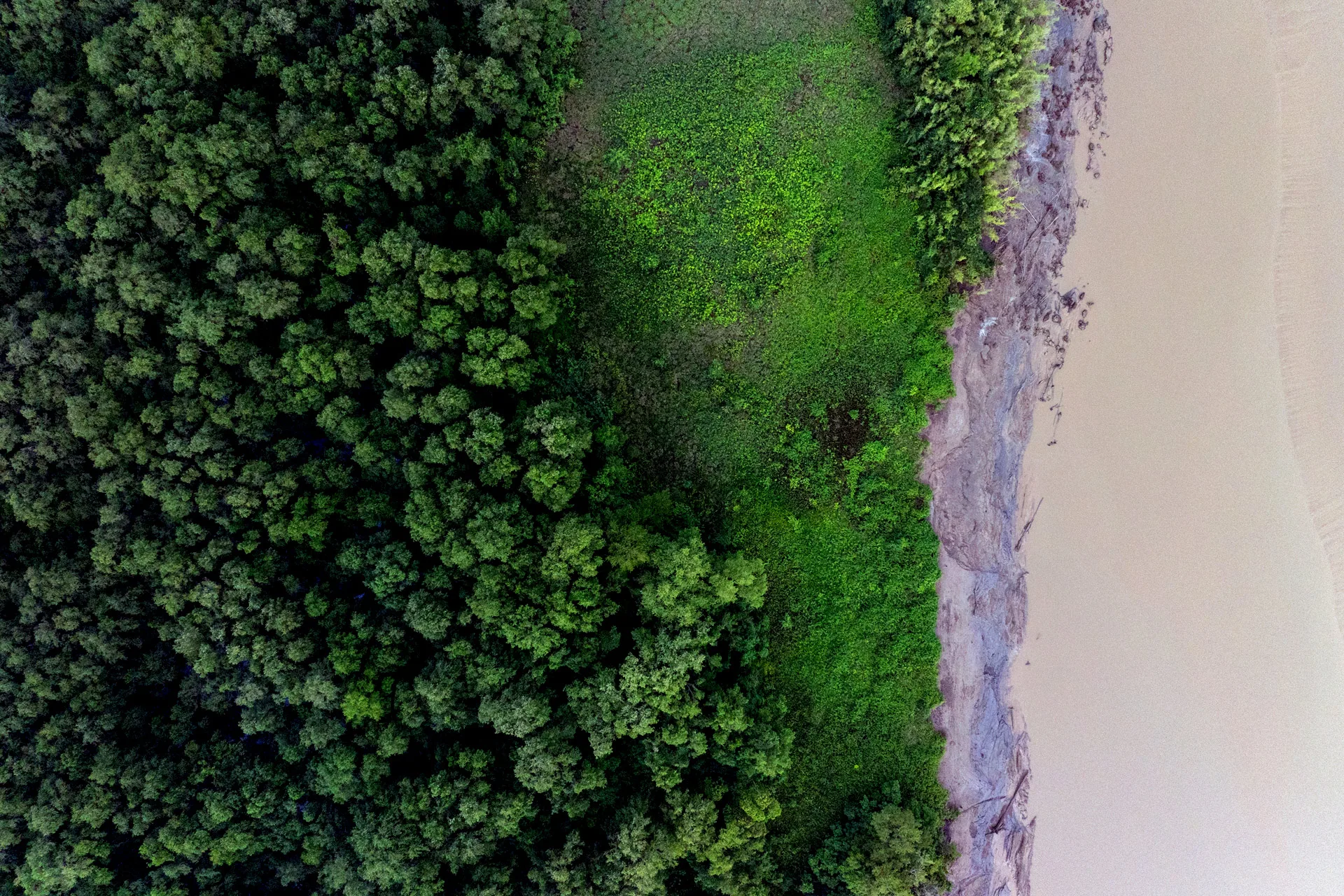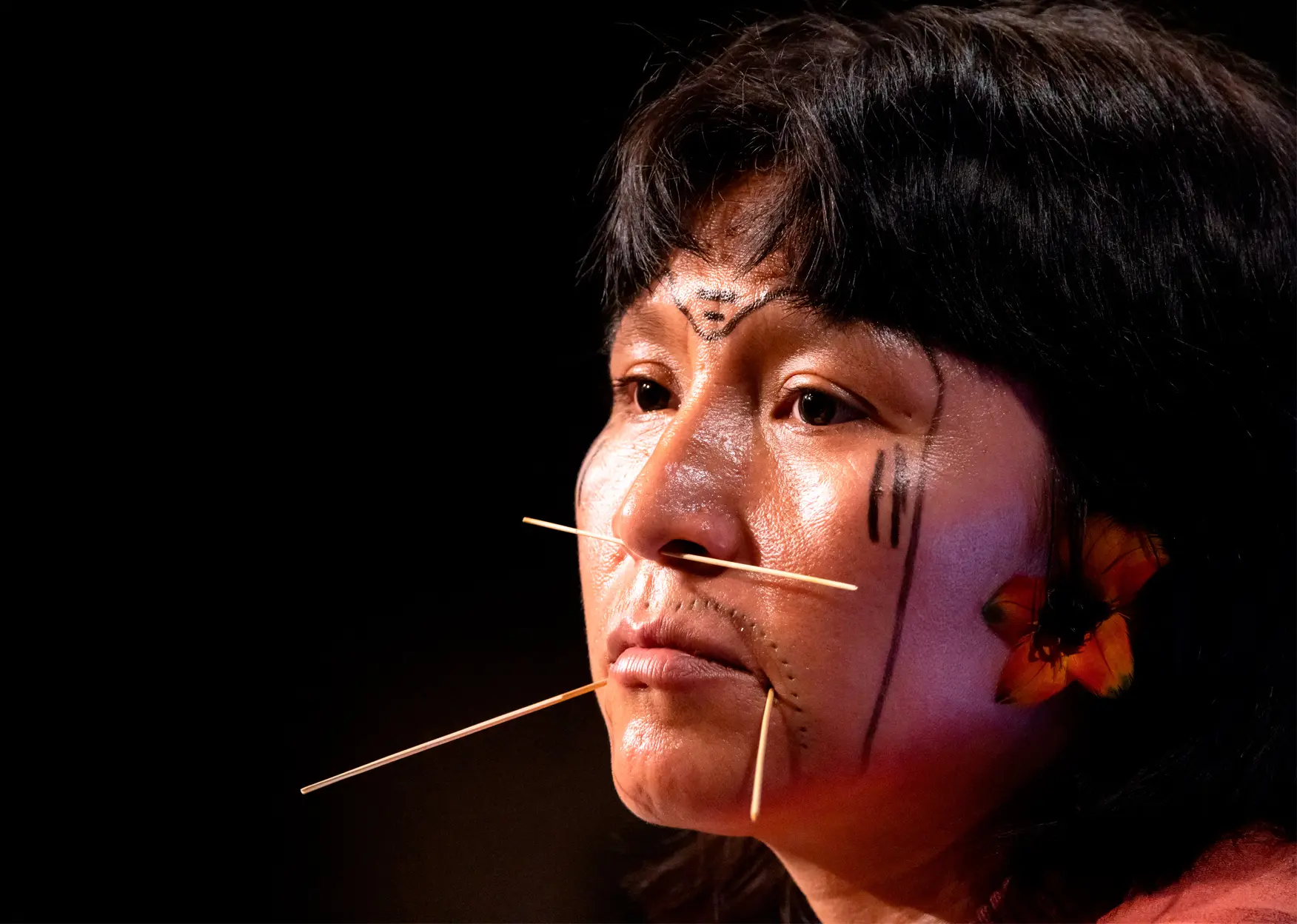In buses, private jets, canoes and wheelchairs, Brazilian voters will go to the polls in October in what mainstream commentators have called a “super election year” for democracies around the world. In a freak alignment of the political stars, more people will cast a ballot in 2024 than at any time in history because eight of the world’s ten most populous nations are holding elections. From India, the European Union, The United States and Bangladesh and Mexico to Pakistan, Indonesia, Iran, South Africa and Venezuela, more than two billion citizens will have a chance to decide who will represent them in parliament, regional assemblies or as president.
This global high-water mark for popular political participation ought to be a cause for celebration. Instead, it has seen a series of fraught battles to stave off dictators and demagogues as a climate disrupted world ushers in a struggle against extreme politics that is all too-familiar in the Amazon rainforest.
The Jair Bolsonaro years of criminal fires, rapid deforestation and rapacious extractivism – and the popular resistance against them – appear to have finally realised the old canard that Brazil is “the country of the future.” Social movements in countries across the world are now following this example and fighting similar battles against homegrown mutations of far-right “populism.”
There have been some heartening victories for progressive movements in the past week. In the UK, the Labour Party returned to government for the first time in 14 years after a landslide general election victory against the Conservatives. In France, the New Popular Front, including ecologists and socialists, staged a remarkable rally to come first in a national vote, despite poll predictions that the winner would be the far-right National Rally party.
But the broad trend remains alarming. As with the 2022 Brazil presidential election victory of Workers Party leader Luiz Inacio Lula da Silva, the wins for the left have brought relief, but nobody is under any illusion that the long-term threat of far right extremism is stronger than it has been in several decades.
In European Union elections last month, there were alarming gains by candidates with anti-immigrant, anti-science, pro-Russian agendas. Meanwhile, the threat of a second Donald Trump victory looms large in the US as the media there worry less about the Republican candidate’s proven crimes than the supposed senility of Democratic incumbent Joe Biden. In Britain, the far-right politician Nigel Farage has won a seat in parliament on the waves of fear, doubt and deception that have discombobulated the country since Brexit. While in France, Marine Le Pen – once a reviled fringe figure like her father – has come within touching distance of power for the first time.
It is no coincidence that extreme politics comes at a time of ever more extreme weather. The world is getting much hotter. This week the Copernicus Climate Service announced that the Earth has just gone through its first 12-month period with average temperatures of 1.5 degrees Celsius above the early industrial period two centuries ago when humanity started to disrupt the global climate by burning coal, gas and oil.
This is increasingly deadly. In the past month alone, at least 1,300 hajj pilgrims died of heatstroke and related diseases as temperatures soared to 51.8C in Mecca, Saudi Arabia. Record heat in Delhi and other Indian cities killed at least 176 people, followed soon after by record floods. Roads also turned into rivers in northern Italy, France, Switzerland, central China and eastern Malaysia. The wildfire season has already started in Greece, Canada and the United States. A category 5 hurricane has formed in the Atlantic earlier than ever before and wreaked havoc across the Caribbean.

In recent months, over 1.300 Muslim pilgrims died when temperatures soared above 50°C (122°F); in the picture, a pilgrim is given aid near Mecca. Photo: Fadel Senna/AF
In Brazil, the northern Amazon region has seen record fires in the first six months of the year and rivers have yet to recover from last year’s droughts. In the south, the flood disaster in Rio Grande do Sul (covered once again by our graphic artist Pablito Aguiar in this issue) has been followed by unusually cold weather. Social and political norms are taking as much of a battering as infrastructure and livelihoods.
With so much death and destruction all around us, even the usual climate sceptics are finding it difficult to deny that humanity faces a crisis. Instead, market zealots and xenophobes, fuelled by fossil fuel money, are using the unfolding chaos to frighten voters and to take the opportunity to replace social safety nets and environmental protections with higher walls against immigrants and rapacious extraction of nature.
Democracy is starting to look almost as fragile as the rainforest. Politicians in the traditional parties will not face the fact that they are no longer living in the stable climate in which that political system was created. The right wants to go back to a past that no longer exists. The left wants to move towards a future that it will not dare to fund. Meanwhile the old fossil-fuel dinosaurs – multinational oil companies, like ExxonMobil, Petrobras and BP, and Petrostates like Russia and Saudi Arabia – benefit from hesitation.
The climate scientist Michael Mann has identified a “coalition of the unwilling” that knows international cooperation and regulation is the only way to deal with the climate crisis, and so sows dissent, doubt and distraction. As examples, he cites Russia’s use of bot armies, trolls and hackers to get climate activists to fight one another, to dig up private emails, which led to the “Climategate” scandal and damaged Hilary Clinton’s campaign against Trump in 2016, and to seed arguments on social media against carbon pricing in Canada or stir up yellow-vest protest in France.
Some far-right parties have received funding or support from Russian banks and businessmen, such as Marine Le Pen’s National Rally in France and Trump in the US. It is alleged that more than a dozen MEPs from across five countries also took substantial sums of money from Russia’s Voice of Europe news agency, a matter that is still under investigation.
More brazenly, Trump has asked oil executives for $1bn for his campaign and promised, in an effective offer of a quid pro quo, that, if he wins, he will loosen drilling regulations, cut support for electric vehicles and withdraw the US once again from the 2015 Paris climate agreement. In Brazil, Lula is beholden to the agriculture lobby to stay in power, which has made him soft-pedal on Congressional moves to limit indigenous demarcation, explore oil reserves at the mouth of the Amazon and push new road and rail projects through the rainforest.

A mask of extreme-right candidate Donald Trump sits on a table while a dramatic debate unfolds on TV between him and Joe Biden, on June 27. Photo: Scott Olson/Getty Images/via AFP
It is a similar story worldwide. The right is becoming more extreme and the left more timid. Moderate mainstream politicians are moving too slowly to adapt to a changing world. The traditional parties emerged in the industrial era, strapped into the straitjacket of national self-interest and capitalist economics. In every country for most of the last century, left and right happily colluded on the need to materially “develop” the nation and expand gross domestic product with infrastructure projects, increased trade and greater consumption. The argument between them was only about how much of the economic pie the government should distribute between rich and poor.
The dividing line is far more complex in today’s climate-disrupted, nature-depleted world. Just as important now is the quality of the pie, where the ingredients came from, and the extent to which overconsumption is leading to obesity, cancer, climate instability and global conflict. Put more simply, politics is now a battle between those who want to fix what is broken and those who want to keep breaking. Many on the old left may not be comfortable with this 21st-century dividing line, but this is the issue that will determine the habitability of our world.
In this “super election year” this may not be the number one issue for most media, but it is there in the background, getting louder and louder. This has an issue in India, which re-elected the extractivist Narendra Modi as head of state, and in Mexico, which chose the energy scientist Claudia Sheinbaum as president. Neither are entirely in one camp or another, but they are capitalising in different ways on the issues of our age.
Facing up to that is an essential step in envisaging a better future. It will not be easy while so many countries are drifting towards hostility, insularity and short-termism. But in the long run, it is the only chance democracy – and, indeed, humanity – has got.

A snapshot of the biodiverse Amazonian coast, a region now under threat by the opening of a new front for oil exploration. Photo: Marizilda Cruppe/Greenpeace
Text: Jonathan Watts
Fact-checker: Plínio Lopes
Proofreader (Portuguese): Valquíria Della Pozza
Portuguese translation: Denise Bobadilha
Spanish translation: Meritxell Almarza
Photo editor: Lela Beltrão
Editorial workflow, copy editing and finishing: Viviane Zandonadi
Editor-in-chief: Talita Bedinelli
Editorial director: Eliane Brum




